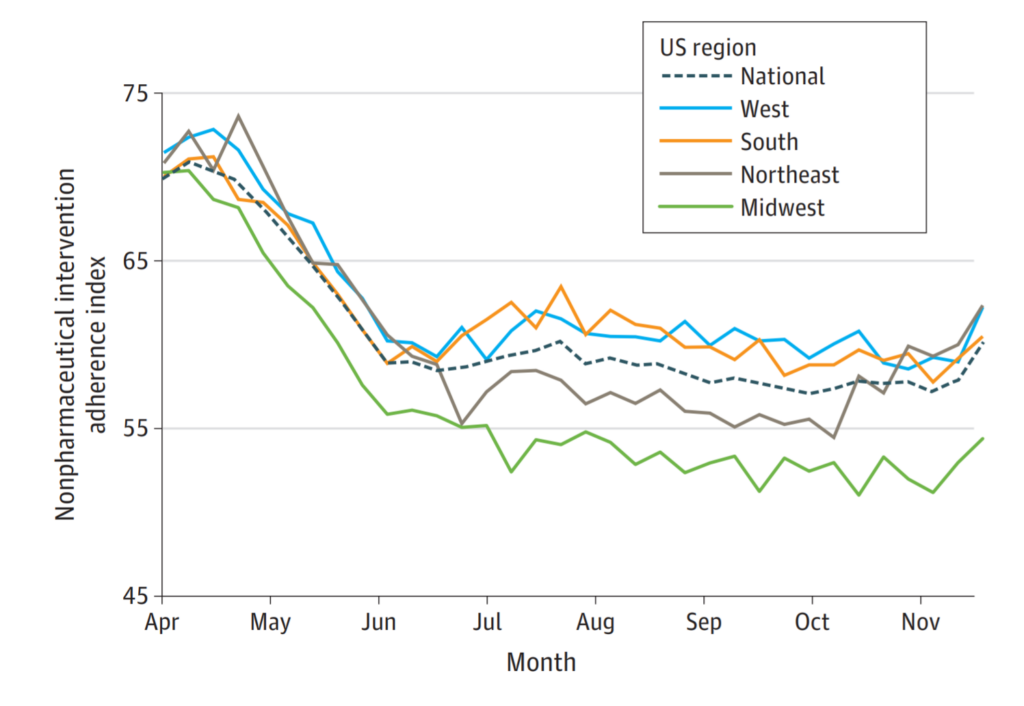Nonpharmaceutical interventions (NPIs) have been used to mitigate the effects of the coronavirus disease 2019 (COVID-19) pandemic. Reports describe an increasing attitude of apathy or resistance toward adherence to NPIs, termed pandemic fatigue.1 To better describe this phenomenon in the US, we used national surveillance data to analyze reporting of adherence to protective behaviors identified as NPIs.
We analyzed 16 waves of survey responses of the Coronavirus Tracking Survey (CTS) completed between April 1, 2020 and November 24, 2020. The survey was sent every two weeks to U.S. residents. We developed an adherence index to understand whether there was evidence of apathy and resistance toward interventions. Responses were adjusted for sociodemographic characteristics of survey week, age, sex, race/ethnicity, education, household income and 7-day mean of daily new cases in the respondent’s state.
Overall adherence on the index decreased substantially from 70.0 (out of a possible 100) in early April to the high 50s in June before increasing to 60.1 by the final wave in late November.
Reported protective behaviors experiencing the largest decreases from early April to late November were:
- remaining inside your home except for essential activities or exercise, which decreased from 79.6% to 41.4%;
- having no close contact with non-household members (63.5% to 37.8%),
- not having visitors over (80.3% to 57.6%), and
- avoiding eating in restaurants (87.3% to 65.8%).
Meanwhile, mask wearing showed a significant increase, from 39.2% in early April to 88.6% in late November.
A press release about this study is available here. This study was published in JAMA.
